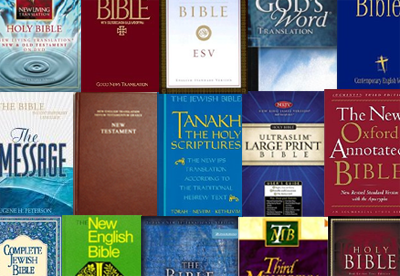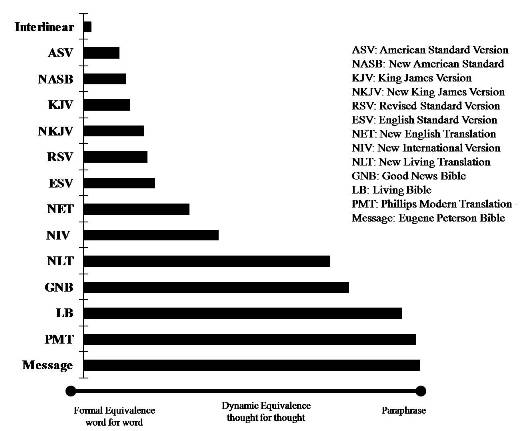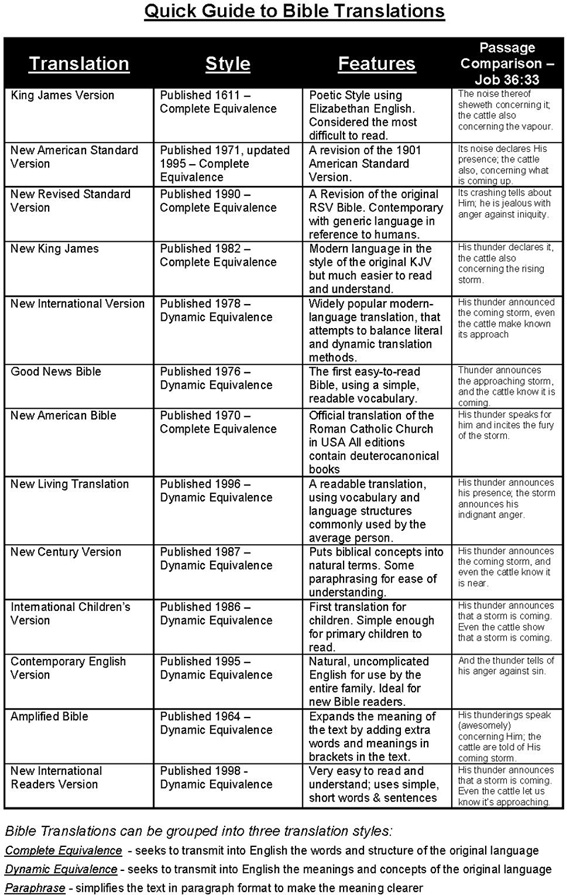Since I have a lot of my sermon manuscripts online from when I was a pastor, and now that I have started a Verse-by-Verse Bible teaching podcast, I occasionally get an email from somebody asking what approach I use to studying the Bible, and what Bible college or seminary they can attend to learn these things.
So this post provides a few short points about how I study the Bible and how you can too.
But before I get to that, let me just say that unless you are going to get a job that requires a seminary degree, you probably don’t need to attend Bible college or seminary. It’s just too expensive and time consuming, and for the most part, you can get the same information you would get at Bible College and Seminary by reading some good books.
But aside from that, here are the 10 Steps I use to study the Bible. These did not come from Bible college or seminary, but are something I put into practice over the course of writing and studying Scripture on my own.

1. Buy Good Bible Study Resources
The first step is to make sure you have some good resources to help you in your study. You need good books, commentaries, lexicons, and Word-study resources.
 In my current Podcast series on Genesis, I not only use a lot of the Bible study tools available through Logos Bible Software, but I also have over 30 additional commentaries and books I consult for each and every show.
In my current Podcast series on Genesis, I not only use a lot of the Bible study tools available through Logos Bible Software, but I also have over 30 additional commentaries and books I consult for each and every show.
Yes, Bible study can get expensive. I easily spend a couple hundred dollars on Bible study resources every time I start out to teach through another book of the Bible.
And yes, Bible study can be time-consuming. I typically spend about 8-10 hours of preparation time on every sermon or podcast I teach.
But listen, there is something SUPER important I want to say about Bible study resources once you have bought them… and it is this:
2. Don’t Use Them! This Is Key!
I cannot tell you how critically important this is.
I firmly believe that a failure to follow this step is the number 1 reason why most Bible studies and sermons you hear from various pastors are lifeless and dead.
If you want your sermons or Bible studies to have life and vibrancy and creativity, you must make sure that no matter how many Bible study resources and commentaries and books you have purchased, that you never, ever, EVER open them.
Wait.
What?
Step 1 was to buy good Bible Study resources. Step 2 is to never use them?
Yes.
At least … and here’s the key … you must not ever read them or use them or open them until AFTER you have finished studying the text and writing out your sermon or Bible study. Your sermon or Bible study must be completely done and ready to teach BEFORE you crack open a single book or commentary.
I cannot emphasize this enough.
There is nothing that will steal the life from your sermon faster than when you rely on commentaries and Bible study resources to tell you what the text means.
The life and vibrancy of any sermon comes from you struggling, praying, and sweating over the text for hours on end. The life of your Bible teaching is found by beating your head against the text on your own until it makes sense to you. The joy of self-discovery in the biblical text leads directly to the joy of teaching the text to others.
If you abort this process of yelling at God about why this text is so difficult to understand, you will never experience the joy that comes when God, by His Holy Spirit, opens your mind and eyes to the meaning of the text, and without this joy of having God teach the text to you, you will never be able to have true joy in teaching the text to others.
So resist, resist, resist the urge and temptation to turn to commentaries too quickly. Complete steps 3-5 below before cracking open a single book.
3. Study the text you want to teach
What text you study and how you study it all depends on your personality, the personalities of the people you are teaching, and the genre of the text itself.
If I am teaching a narrative, my sermon will take a more narrative approach. If I am teaching one of Paul’s letters, my sermon will take a more informative approach.
I read over the text a lot. I read it in its context. I write down some main points and initial observations or impressions of the text.
Somewhere in this process, I get a sense of what the text is about, and what I want to say about it. I begin to organize these thoughts in a logical way and write them down on a pad of paper or in Microsoft Word.
4. Keep studying the text you want to teach
This is a repeat of step 3, because this step is so important, and it takes the longest. Just keep studying the text. Thinking through the text. Looking at the words in their context. The sentences in their context. The paragraph in it’s context.
Two books, by the way, you ARE allowed to use at this point, might be a Bible concordance and Bible dictionary. If you want to look up what a word means or where it is used elsewhere, this is the place for that. And unless you have the Bible memorized, and know exactly what every word means, you sort of need a concordance and Bible dictionary to help you out.
5. Manuscript your sermon or lesson
This is a critical step for me as well. I manuscript my entire sermon or Bible study. Every word gets written down.
This doesn’t mean I am exactly going to use the manuscript when I teach the sermon or Bible study (I am definitely NOT going to read it!), but this stage of Bible study is important to me for several reasons.
First, typing out what I want to say helps me think logically through what I want to say. Almost always, what makes sense in my head ends up making no sense at all when I see it on the screen in front of me. So this helps me thing through exactly what I want to say and why.
Second, typing out what I want to say helps me sense the flow of the sermon or study. For example, the idea that I will simply transition from one point to another becomes much more difficult when I actually try to type it out.
Third, I can better judge the length of a sermon or manuscript if I type it out. The way I manuscript my sermons, I know that it takes me about five minutes to get through one page of text. So if I have 8 pages, that sermon will be about 40 minutes.
Fourth, manuscripting a sermon makes it super easy to preach that sermon in another place at another time if I ever want to. I can just pull it out, review it, and I’m good to go. Also, if I want to know what I said about a certain text, the manuscript helps with that. Also, now that I am putting my sermons online, it’s easy to just publish the manuscript. Also, as I write more books, I often find that I can pull sections out of previous sermons and include them in the books I write. Also (are you getting the picture here?), as I change the way I think about a text or how I understand it, it is easy for me to go back and update an already-existing manuscript.
Anyway, write it out.
6. NOW, Turn to your books and commentaries and Bible software
Okay, after you have completely finished your study and have written out your manuscript and are ready to teach what you have learned, this is when you should consult your books and Bible commentaries and Bible study software. You are now in a position to benefit from what these books say, or to argue with them and disagree (as often happens).
Read them all. Read widely. Even (especially!) read those books and commentaries you know you will disagree with.

If you are a Calvinist, read commentaries from Arminians or Catholics, and vice versa. If you are liberal, read conservative commentaries, and vice versa. Be challenged by what you read. Stretch your mind and your thinking.
After all, if you are wrong, don’t you want to know? And if you are right, what is there to fear from reading voices that disagree? Doing so will only help you know the opposing arguments, and how to refute them, which makes your view stronger.
7. Add, adjust, change your manuscript as necessary
As you read books and Bible commentaries, add further notes, quotes, or insights from these commentaries to your manuscript.
This is okay to do at this stage, because you have done all the hard work on your own first. Rather than relying on others to do your work for you, this is only making your work even better. If you find that others arrived at the same conclusions you did, feel free to add footnotes to your manuscript so that you have support for your views, and also so that you can later go back and find what others have said.
If what you read contradicts what you discovered on your own, you must weigh the arguments that are used against the arguments you used, and decide which view is best. If you realize you are wrong, this is fine, for you just learned something. Change your manuscript to incorporate the correct view or explanation.
Occasionally, as a result of waiting until this point to consult the ideas of others, I have had to throw out entire sermons. I remember many times as a pastor, staying up almost all night on Saturday night rewriting and redoing my entire sermon because of something I found written in a commentary. But that’s the way it goes.
8. Sleep on it.
After you have finished studying the text, writing your manuscript, and consulting the ideas of others, put it away for at least one night before you teach it.
Oftentimes, as you sleep, your subconscious mind (or call it your Spiritual mind) sorts through the teaching to come up with insights you hadn’t thought of before, or solutions to problems you couldn’t understand, or things that you need to take out of your sermon or Bible study lesson.
For me, it is the latter that happens most often.
Quite frequently, when I get up in the morning, as I think through the sermon or Bible study lesson I had prepared during the previous days, I visualize the manuscript of the sermon and it is almost as if I see black Xs over certain parts that I need to cross out.
Why? Well, maybe it is because those sections are confusing or unnecessary, but most often, it is because those sections are religious.
 The sections I most often feel uneasy about after a night’s sleep are the sections where I am trying to manipulate and control people with guilt, fear, or shame. They are the sections that sound judgmental. They are the sections that were included to boost my ego and pride.
The sections I most often feel uneasy about after a night’s sleep are the sections where I am trying to manipulate and control people with guilt, fear, or shame. They are the sections that sound judgmental. They are the sections that were included to boost my ego and pride.
I think, “Is that illustration really necessary, or am I just trying to play with people’s emotions to get a reaction out of them?”
I think, “Is that use of a Hebrew word really necessary, or did I include it just to show my hearers that I know Hebrew?”
I think, “Is that application going to help people live in the love of God, or will it just dump more guilt and shame and responsibility upon their lives?”
9. Review the sermon or Bible lesson with your spouse.
Depending on the time you have available, this step might occur before you sleep on it, but ideally, it occurs afterward. Sit down with your spouse or significant other, or maybe even a small team of people, and go through your manuscript with them. “Preach” it to them, allowing them to interject, ask questions, make comments, and seek clarification as you go along. The things they say are the things that others will be thinking as you teach them, so this is an important step in the process.
Also, think of this as a practice run. By speaking the message out loud, your ears and their ears pick up awkward phrases, hear things that need more explanation, and overall, provide feedback on how things could be said better.
Figure that this step will take two or three times as long as the sermon or lesson itself. If your sermon is intended to be 30 minutes, this review stage could take an hour or more.
10. Always remember that Jesus wants to teach you first.
I probably should have put this step first, but I included it last because it sort of goes without saying.
When you sit down to study the Bible or prepare a sermon, the first and last thought on your mind should be, “Jesus, teach me today.” I sometimes like to picture myself sitting at the feet of Jesus as one of His disciples, and watching Him opening the Bible on His lap, and then explaining it to me.
I figure that if I don’t let Jesus teach the text to me first, I have no business trying to teach it to others.
Of course, this sort of mindset can quickly lead to pride and arrogance, so be careful. You will learn to recognize this pride and arrogance when you do Steps 6 and 9 above. If a commentary disagrees with what you wrote, there might be a temptation to think, “Well, what I wrote is superior to what this guy wrote, because I learned it from Jesus.” If, as you are reviewing your manuscript with your spouse, and she says, “That part there doesn’t make any sense,” and you think, “That’s because she hasn’t spent as much time pouring over the text with Jesus as I have,” you have completely missed the entire point and Jesus didn’t actually teach you anything.
So as you work your way through the various steps above, always be listening to the still, small voice inside. Always remember that whatever the text says, it says it to you first. You must never preach a sermon or teach a Bible study that has not first found its way into your own heart, mind, and life.
Bonus: Everything you Teach and Write must be In Love
I am convinced that when you follow the 10 steps above in your own Bible study, what you say in your sermons will come out with a spirit and attitude of love.
Love is the defining characteristic of the true teacher of the Word. If what you are saying and writing comes out with harsh judgmentalism and criticism, what you are saying is not from God, but is from an accusatory spirit.
If you follow all the 10 steps above, but forget to teach with love, you are guilty of the biggest heresy of all time.
How Do YOU Study the Bible?
So how about you?
Do you engage in much Bible study or sermon preparation?
If so, did any of the ten points above resonate with you? What would you add? Let me know in the comment section below!





 If you want to include stories and illustrations to help people understand what you are saying, this is fine to do; just don’t say you are following the example of Jesus.
If you want to include stories and illustrations to help people understand what you are saying, this is fine to do; just don’t say you are following the example of Jesus. Most “Christian” stories are too sanitized to be any good.
Most “Christian” stories are too sanitized to be any good.
 Over at the “
Over at the “
 Babies.
Babies.
 Earlier I used a marriage as a metaphor, here’s another one: If you feel woefully out of shape physically, and once a week you attend a seminar on how to work out, or how to eat healthy, but then the rest of the week don’t live any different, can you complain about the seminars?
Earlier I used a marriage as a metaphor, here’s another one: If you feel woefully out of shape physically, and once a week you attend a seminar on how to work out, or how to eat healthy, but then the rest of the week don’t live any different, can you complain about the seminars?


 People often ask, “What is the best Bible translation?”
People often ask, “What is the best Bible translation?”




